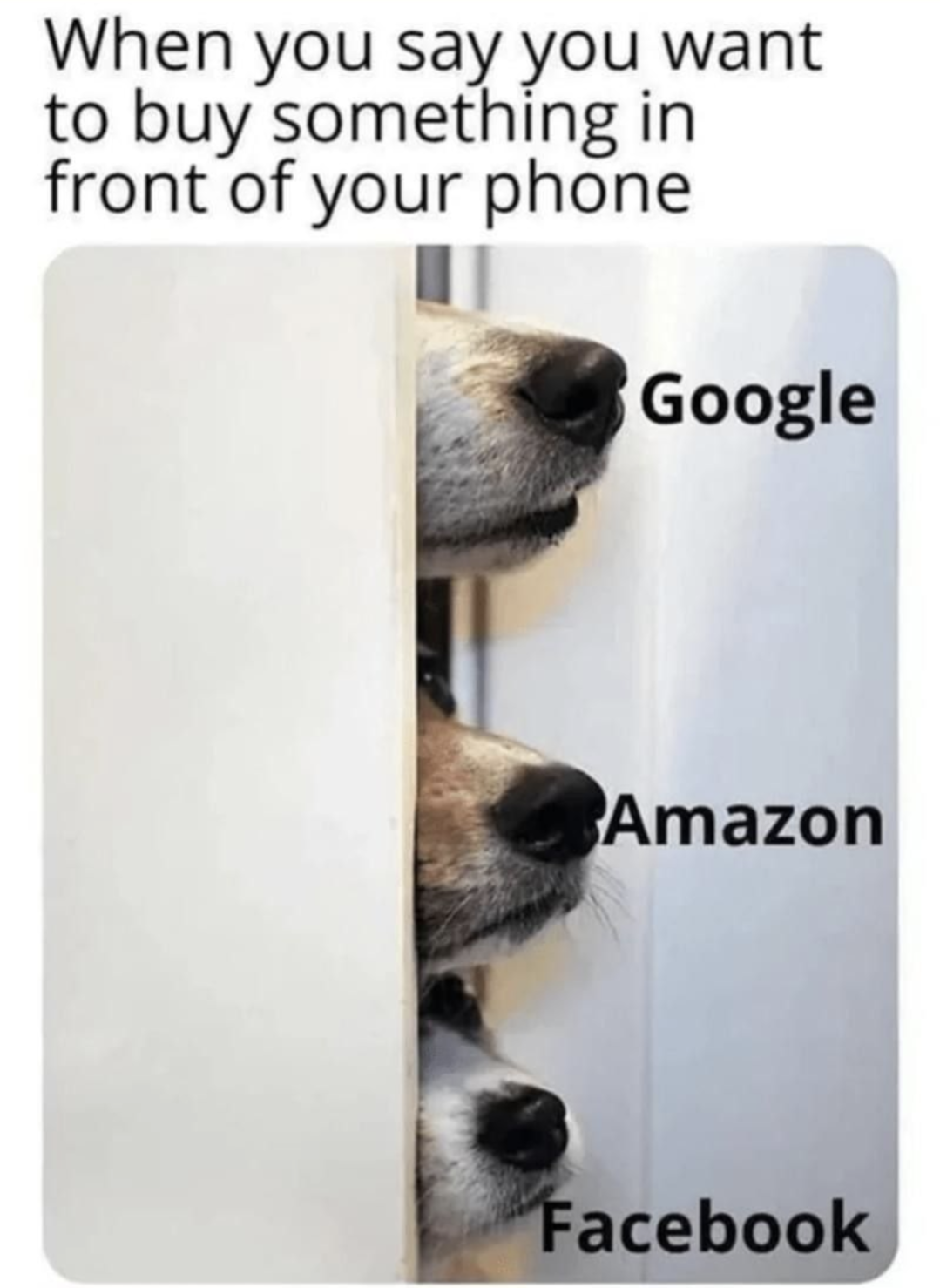this post was submitted on 19 Aug 2024
1014 points (95.9% liked)
Funny: Home of the Haha
5776 readers
740 users here now
Welcome to /c/funny, a place for all your humorous and amusing content.
Looking for mods! Send an application to Stamets!
Our Rules:
-
Keep it civil. We're all people here. Be respectful to one another.
-
No sexism, racism, homophobia, transphobia or any other flavor of bigotry. I should not need to explain this one.
-
Try not to repost anything posted within the past month. Beyond that, go for it. Not everyone is on every site all the time.
Other Communities:
-
/c/TenForward@lemmy.world - Star Trek chat, memes and shitposts
-
/c/Memes@lemmy.world - General memes
founded 1 year ago
MODERATORS
you are viewing a single comment's thread
view the rest of the comments
view the rest of the comments

There are many anecdotes, and even I can think of a handful of times where I wondered the same. Officially, yes our phones are listening all of the time, but supposedly only for keywords for voice assistants, mostly.
Amazon, Google, and Facebook deny that they record all conversations, and Google even had users opt out of voice collection when accusations about these things first popped up.
It is likely that these companies have so much data about us and the people around us, that they are able to infer things that come up naturally in conversation with friends and family. For instance, they know when someone else in your vicinity searches for something. So, for example, when one of your friends searches for a movie that you talked about in conversation, these companies know to show you that movie's preview.
Still, I wouldn't be surprised if at least one of these companies is doing something shady with audio data.
https://www.tweaktown.com/news/100282/facebook-partner-admits-smartphone-microphones-listen-to-people-talk-serve-better-ads/index.html
And how exactly one is supposedly capable of proving such thing? Let's say someone video-records themselves saying something near the microphone, so to catch the moment when the phone does suggest an ad about what was spoken, then a skeptical would say "Oh, but it doesn't prove anything because the camcorder is actually a smartphone connected to the internet", so let's say that, instead of a modern smartphone, one uses some pre-Internet camcorder (old Sony camcorders, JVC, etc), so to rule out the possibility that the recording itself would affect the results. Then the skeptical would say "It also doesn't prove anything, you could've been googled it before".
There's absolutely no way to prove, except when it starts to happen with yourself, or if someone actually manages to sneak into corp's private Git/SVN/Mercury repo containing the closed source code and point "Ha! There it is, the pesky AI module responsible for NLP and voice recognition that actually feeds ad partners with microphone data in order to increase sales and profits".
Also, don't expect any dev or ex-dev from such corps whistleblowing such thing publicly because there's something called "NDA" (Non-disclosure agreement) and people that already did this (for example, Snowden) is generally seen as "crazy" or "liars" by the majority of people (and they are promised of fines and even jail for such break of corporate secrets).